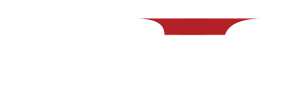Legislation
Building Code Acceptable Solutions Amendments
From November 2023, new homes and substantial renovations will require interconnected smoke alarms.
What has been introduced?
- Smoke alarms must be either 10-year long-life battery-operated or 240v mains powered and interconnected.
- Smoke alarms shall be located on or near the ceiling;
- Smoke alarms shall be provided with a ‘hush button.
- Smoke alarms shall be located in all bedrooms, living spaces, hallways, and landings within the building;
- Where a kitchen is separated from the living spaces and hallways by doors that can be closed, an alarm specified by its manufacturer as suitable for a kitchen shall be located in the kitchen. This may be a heat alarm to avoid nuisance activation’s;
- In a multi-level household unit, there shall be at least one smoke alarm on each level; and
- Where more than one smoke alarm is needed to meet the requirements of this standard, these smoke alarms shall all be interconnected so that when one activates, all smoke alarm devices in the household unit will sound.
When will this happen?
The amendments came into effect from the 1st November 2023. The changes will have a 12-month transition period ending in November 2024. Visit the Standards New Zealand website for further information.
Smoke Alarm obligations for Landlords
Smoke alarm legislation was introduced in New Zealand on the 1st July 2016 via changes to the residential Tenancy act. Tenancies (Smoke Alarms and Insulation) Regulations 2016.
The legislation details specific responsibilities for Landlords, Agents and Tenants.
The Ministry of Business, Innovation and Employment put all agents on notice on 10 April 2017 confirming that random auditing would take place for Landlords and property management companies.
Landlords who are found to have failed to meet current legislation may incur penalties of up to $7,200. If tenants don’t meet their obligations they could face financial penalties of up to $4,000.
Property management companies are acting on behalf of landlords, and as such, have a responsibility to ensure the properties they manage, meet all legal requirements.
Landlord responsibilities
Smoke alarms are mandatory in those homes and other shared accommodation buildings where people sleep as specified in Tenancies (Smoke Alarms and Insulation) Regulations 2016.
Smoke alarms are to be qualifying smoke alarms and installed:
- within 3 meters of each bedroom door, or in every room where a person sleeps
- in each level or story of a multi-story or multi-level home
- in all rental homes, boarding houses, rental caravans, and self-contained sleep-outs
- The requirements must be met as at the commencement of the tenancy and at all subsequent times during the tenancy
All new smoke alarms must:
- be photoelectric
- have a battery life of at least ten years, or be hard-wired
- installed according to the manufacturer’s instructions
- meet international standards
- Existing smoke alarms do not need to be replaced if they are working, and have not passed the manufacturer’s expiry date
What is a qualifying smoke alarm?
- the alarm must be fully operational and otherwise in full working order, with no faults, defects, or damage
- the alarm must be installed at a location that accords with the manufacturer’s instructions for the alarm
- the alarm’s recommended replacement date must not have passed
- the alarm’s recommended replacement date must be displayed on the alarm
- the alarm must be a photoelectric alarm:
- the manufacturer’s instructions for the alarm must include a certification, or other statement, to the effect that the alarm
- has been manufactured in accordance with—AS 3786:2014
Landlords and tenants are responsible for maintaining smoke alarms
Landlords must ensure smoke alarms:
- are working at the start of each new tenancy
- remain in working order during the tenancy
Tenants must:
- not damage, remove, or disconnect a smoke alarm
- replace batteries during the tenancy if there are older- style smoke alarms with replaceable batteries
- let the landlord know if there are any problems with the smoke alarms as soon as possible
Boarding Houses
There must be at least 1 qualifying smoke alarm installed—
- in the tenant’s boarding room or otherwise at the premises within 3 metres of the entrance (or main entrance) to the tenant’s boarding room.
- on the storey or level in the habitable space or in at least 1 of the habitable spaces (as the case may be).
- Landlords must replace expired batteries in the common areas of boarding houses like hallways and kitchens.
- Tenants must replace expired batteries in their rooms.

